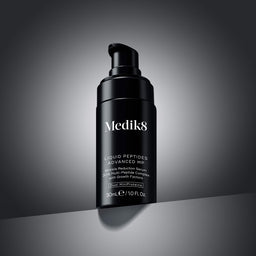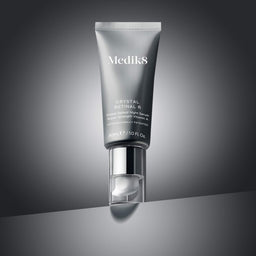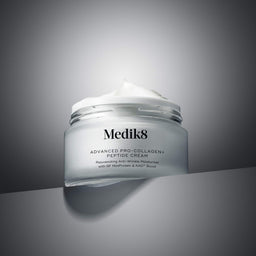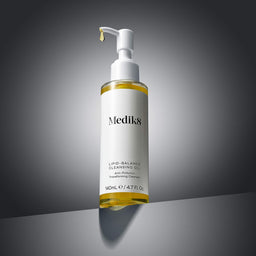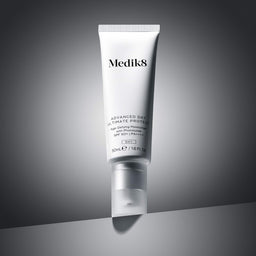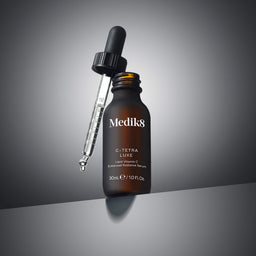How to Improve Skin Texture and Tone
Written by: Lucy Partington
Updated on: 11 April 2024
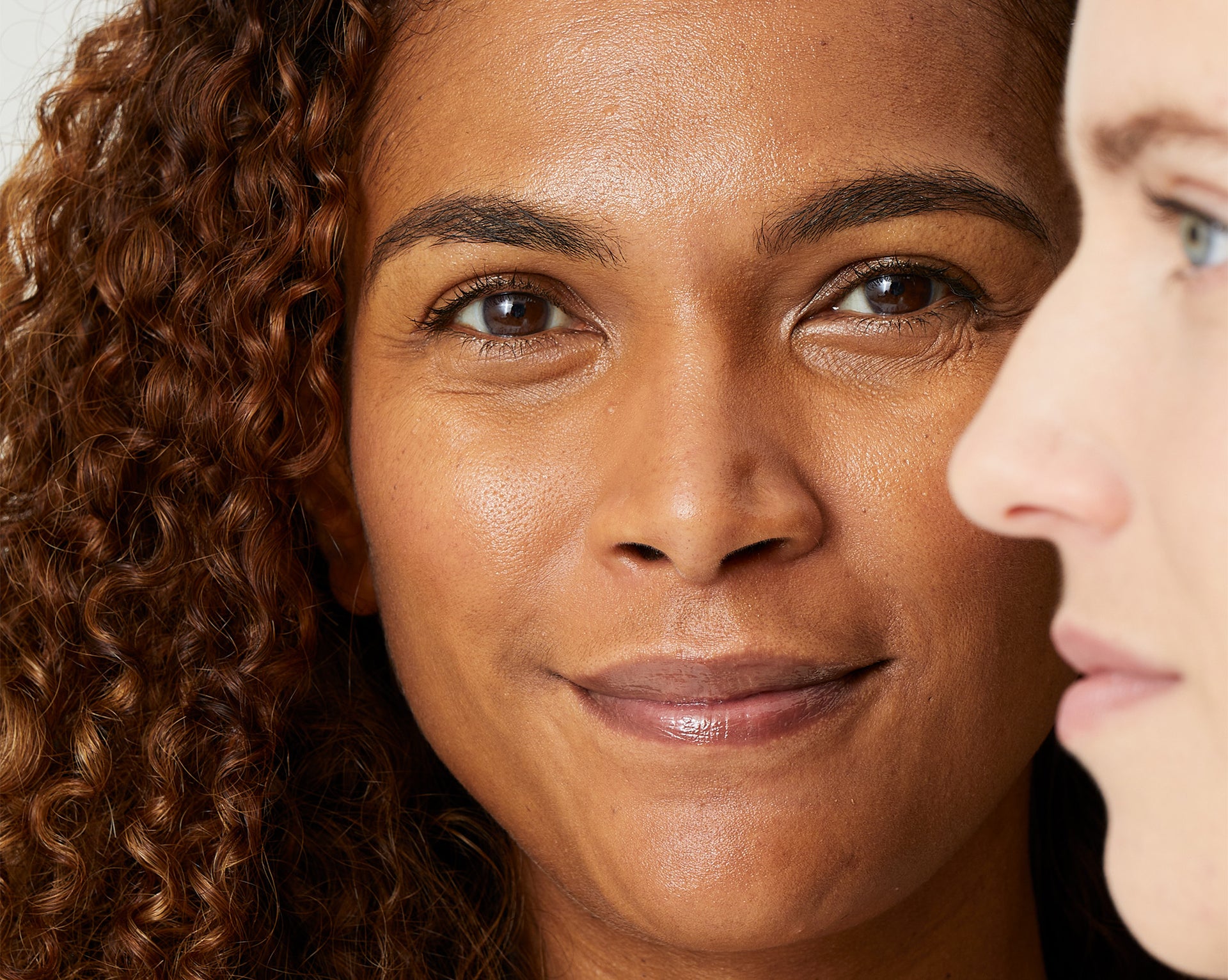
Not all skin is equal, and while some people will have a smoother skin texture, others might notice that theirs feels rough to the touch, is uneven or bumpy.
The natural variations in skin texture aren’t always a cause for concern, and it’s important to remember that those variations can arise due to a myriad of factors: genetics play a huge part, as does individual skin type, and then there’s environmental influences and lifestyle choices to consider. Plus, sun exposure levels, hormones, age and hydration levels all contribute to the diverse array of skin textures that exist – and the key to managing your own is understanding what’s causing it in the first place, and then from there you can determine what the best products to improve skin texture are.
What is textured skin?
The term ‘texture’ is defined as the feel, appearance or consistency of either a surface or a substance. When it comes to skin, texture is a word used to describe skin that may have some irregularities, roughness, bumps or unevenness. There are a few reasons why skin may be textured, and it can present itself in a variety of different ways. As a result, people will often seek out the best treatments for improving skin texture.
What are the causes of textured skin?
✓ Excess dead skin cells
✓ Skin conditions, including psoriasis, eczema and dermatitis
✓ Clogged pores
✓ Acne
✓ Inflammation
✓ Hormone imbalance
✓ Environmental aggressors
✓ Ageing
✓ Sun damage
✓ Lifestyle factors
✓ Dehydration
✓ Individual skin type
✓ Lack of skincare routine
✓ Medication
What are the different skin texture types?
Uneven texture can show itself in a number of different ways, including dry, flaky patches, fine lines and wrinkles, enlarged pores, congestion and dullness.
Enlarged pores
Enlarged pores are characterised as visible openings on the skin’s surface that appear larger than average. They can occur as a result of a variety of factors, including genetics, oily skin, ageing, sun damage and clogged pores. Plus, as skin ages, it loses elasticity which can cause pores to look larger.
Acne scars
Acne scars are marks that are left over following severe or prolonged breakouts. They can manifest in different forms, including pitted or raised scars and post-inflammatory hyperpigmentation, and they tend to develop when the skin’s collagen production is disrupted during the healing process.
Dry skin
Not to be confused with dehydrated skin, dry skin is a common condition caused by a lack of moisture and hydration. It happens when the skin doesn’t retain sufficient water, or when there’s a lack of natural oils (sebum) that help keep the skin lubricated. Dry skin presents itself as rough, flaky and scaly, and can often feel tight and itchy.
Fine lines and wrinkles
Both very common, fine lines and wrinkles appear on the skin’s surface over time. Fine lines are shallow and tend to appear around areas prone to movement (like the eyes, mouth and forehead), while wrinkles are deeper creases or folds in the skin that become more apparent with age.
Congested skin
Congested skin is the overarching term for skin that is either clogged or blocked, most often due to a build-up of excess oil, dead skin cells and debris that accumulate inside pores. That can lead to the formation of blackheads, whiteheads and other types of blemishes or breakouts.
Roughness
Rough skin is defined by an uneven, bumpy or coarse texture. It can happen for a number of reasons, but when the outer layer of skin lacks moisture or becomes damaged, it can lose its smoothness and develop a rough texture. Conditions including eczema, psoriasis or keratosis pilaris (also known as ‘chicken skin’) can all contribute to rough skin.
Uneven tone
If you notice that your skin appears darker or lighter in some places, or there’s a lack of uniformity in your complexion, then that’s considered an uneven tone. It can show itself as hyperpigmentation, redness or sallowness and can happen as a result of things including sun damage, hormonal changes, inflammation, genetics and acne scars.
Dull complexion
A dull complexion is skin that lacks brightness, radiance and vitality, and as a result looks lacklustre or flat. It can cause skin to look tired, aged and less healthy and can occur as a result of dehydration, accumulation of dead skin cells, sun damage, environmental factors and a lack of sleep or stress.
How do I restore textured skin?
Believe it or not, restoring textured skin isn’t as difficult as it may seem. The best route involves building a targeted routine that not only addresses the underlying causes of uneven texture, but that also promotes skin renewal.
Medik8 recommends
Thoroughly cleanse
The first step in helping to target any sort of skin texture is to ensure you’re properly cleansing your skin. Medik8’s Surface Radiance Cleanse is formulated with a trio of acids – mandelic, salicylic and lactic – and it works to visibly smooth and brighten skin, without leaving it feeling dry or tight, plus it’s suitable for using both morning and evening.
Ensuring you’re removing make-up and sunscreen at the end of the day is also vital, and that’s why we always recommend double cleansing in the evening. The first cleanse – using an oil or a cream cleanser – will remove impurities from the skin, while the second – with a gel, mousse or foam formula – will actually cleanse your skin and prepare it for the skincare you’re about to apply.
Exfoliation
Exfoliation is a key part of any routine designed to improve skin texture because it promotes skin surface renewal and sloughs away any dead, flaky cells, which in turn helps to even out the appearance of the skin.
Introduce an acid
Choosing the right acid for you can be confusing, and here at Medik8, we have a number of options to ensure you can find your perfect product.
Our exfoliating tonics (Press & Glow and Press & Clear) are gentle enough to be used up to twice a day, every day. When it comes to our other exfoliating products, we recommend using them 2-3 times a week, depending on your individual skin type and concern.
Sleep Glycolic is our best-selling AHA overnight peel, which contains encapsulated time release technology and is ideal for use 2-3 times per week. Our Blemish Control Pads take the guesswork out of acid toning and they are gentle enough to be used every day, twice a day if needed.
Incorporate vitamin C
While vitamin C should be a key part of any skincare routine, it's especially good for those looking to even out skin texture. Not only does it promote collagen production (natural levels of which deplete as we age) to help soften, smooth and firm skin, but it also hydrates, brightens and it can help reduce redness, too.
That’s why it's the first of the three key pillars of Medik8’s CSA Philosophy – our simple, clinically proven approach to youthful, glowing skin that’s as easy as vitamin C plus sunscreen in the morning and vitamin A at night.
Vitamin C is celebrated for its effective, radiance-boosting, collagen-supporting, antioxidant benefits and is a must-have in any daily skincare routine. Our best-selling C-Tetra Luxe is clinically proven to reduce the appearance of both wrinkles and hyperpigmentation in just 4 weeks*, and it also works to boost visible radiance while also supporting the skin’s barrier. It’s gentle, nourishing and is ideal if you’re looking to help improve the overall look and feel of skin.
Hydrate and moisturise
When skin is properly hydrated it looks radiant, plump and smooth, plus it’s able to better regulate oil production – in turn, that can reduce the risk of breakouts and helps minimise the look of both fine lines and wrinkles, resulting in a smoother, more radiant skin texture.
That’s where our much-loved Hydr8 B5 Intense serum comes in, which promises to replenish and recharge skin’s natural moisture levels in just 24 hours**. Consider it to be the ultimate hyaluronic acid serum: expertly formulated, it has been fortified with superfood antioxidants and natural moisturising factors (NMFs) for visible skin rehydration.
Moisturising is also a key step in improving skin texture, and at Medik8, we make it easier than ever by ensuring each of our SPF formulas combine sunscreen and moisturiser into one step. Advanced Day Ultimate Protect is a true does-it-all sunscreen and age-defying moisturiser for your morning routine. Not only does it work to prevent the visible formation of wrinkles, dark spots, dullness and uneven skin texture, but it also works to support skin’s natural repair mechanisms following UV exposure – plus it’s non-comedogenic and non-greasy.
Then, in the evenings, we recommend Advanced Night Restore, our best-selling multi-ceramide night cream that nourishes deeply and visibly firms the complexion while you sleep – all whilst supporting your skin’s natural barrier.
Don’t forget to wear sunscreen
A good sunscreen is a non-negotiable in any skincare routine, and that’s why it’s another core part of our CSA Philosophy. To make things even easier, all of our SPF formulas combine broad spectrum UV protection and moisturiser in one step, and our choice of products means you’ll be able to find the perfect one for you and your routine.
Add a retinoid
The final pillar in our CSA Philosophy is vitamin A – also known as retinol or retinal. Our best-selling Crystal Retinal serum is our groundbreaking formula and is the one we recommend to everyone. Acting 11x faster than retinol***, this next-generation formula is available in a range of 5 different strengths and it works to speed up skin cell renewal to help address skin’s texture for a visibly brighter, smoother-looking complexion.
If you’re not sure which product is best for you, check out our expert guide to which vitamin A derivative is right for you.
Avoid harsh skincare ingredients
One of the key things to note when it comes to building a skincare routine for textured skin – or for any type of skin – is to avoid using harsh skincare ingredients. That includes using too many ingredients at one time, and not overusing exfoliating products. Instead, ensure that you’re sticking to the product-specific instructions, and remember it’s best to start out with fewer products and then add in more as and when you feel like your skin might benefit from other ingredients.
Update skincare with the seasons
In the same way that you dress according to the seasons and the weather outside, it’s important to adapt your skincare routine, too. The weather can have a huge impact on the skin’s texture – for example, in the colder months when humidity levels are low and the weather is colder, the skin’s barrier may become compromised which can lead to increased sensitivity and irritation.
In contrast, warmer months can exacerbate both oil production and congestion, causing a rough or uneven texture. Plus, increased sun exposure in the summer can speed up the breakdown of collagen and elastin, which can increase the appearance of fine lines and wrinkles.
Consider lifestyle and environmental factors
Lifestyle and certain environmental factors can have a big impact on skin texture. Environmental factors, like pollution, UV radiation and harsh weather conditions can all damage the skin barrier, leading to dryness, sensitivity and uneven texture. The same goes for some lifestyle choices too: smoking, excessive alcohol consumption and a poor diet can contribute to skin issues, and even things like stress and lack of sleep can have an impact.
That’s why experts recommend eating a varied diet, getting enough sleep and trying to manage stress levels, plus protecting the skin from environmental stressors – through the use of vitamin C and sunscreen – can also help preserve skin’s texture and its overall health.
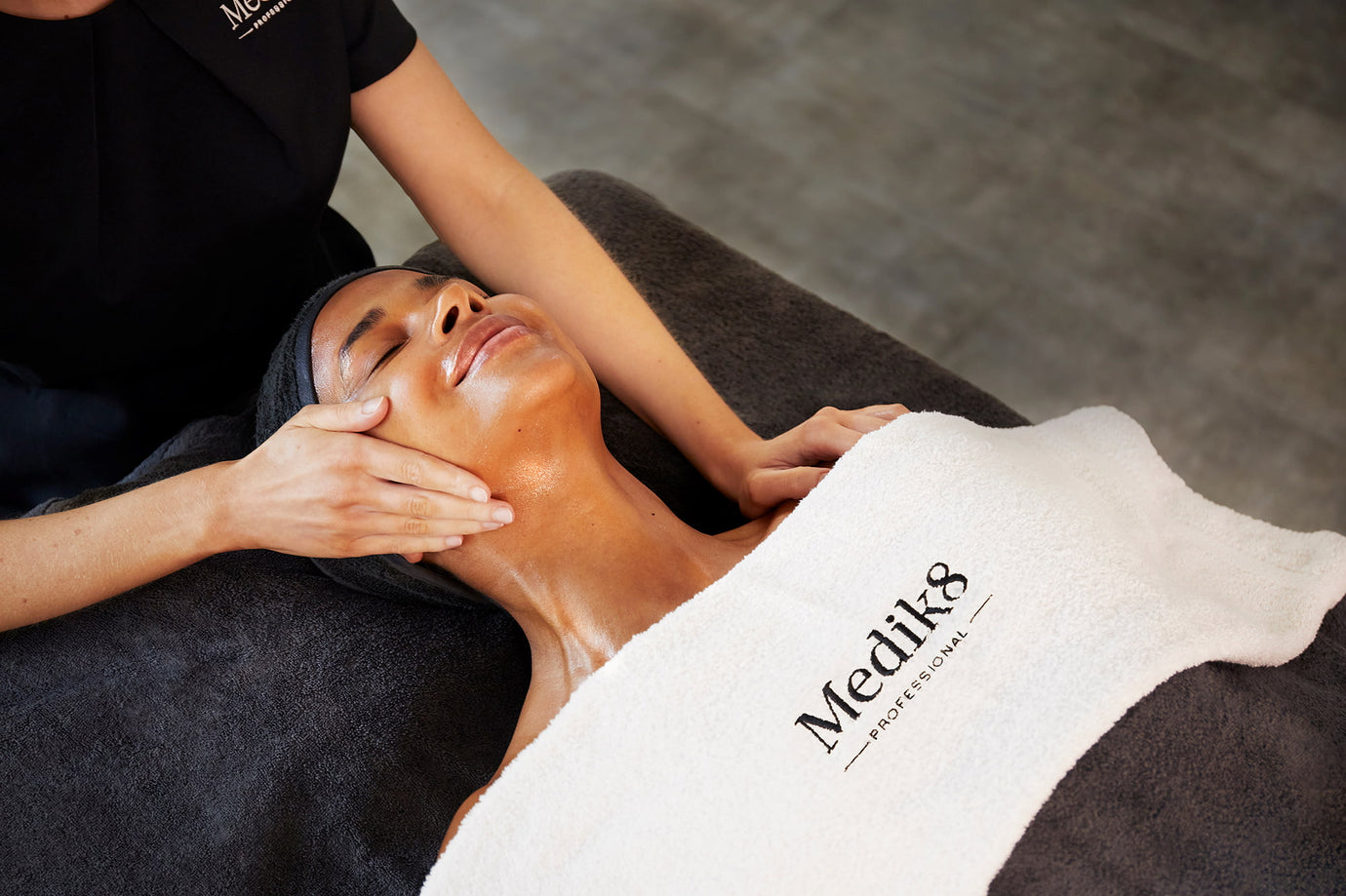
Try professional treatments
There are some effective professional treatments that can help target skin texture. We always advise speaking to a dermatologist or skincare professional before trying any of our treatments, but our extensive menu of youth-enhancing facials and peels that, over time, can help address the appearance of stubborn skin texture.
Top ingredients to help smooth skin texture and improve skin tone
The world of skincare ingredients can be overwhelming, and knowing what’s best to improve skin texture can be confusing, but we’re here to help break it down and help you discover what will be best for targeting your individual concerns.
It’s important to note that not all skincare ingredients are suitable for everybody to use all the time, and what works for somebody with enlarged pores will be different for somebody else who has fine lines and wrinkles. It’s all about taking a personalised, targeted approach, and remember that a less-is-more approach is best. If you’re confused about anything, you can reach out to our customer service team who will be able to help you.
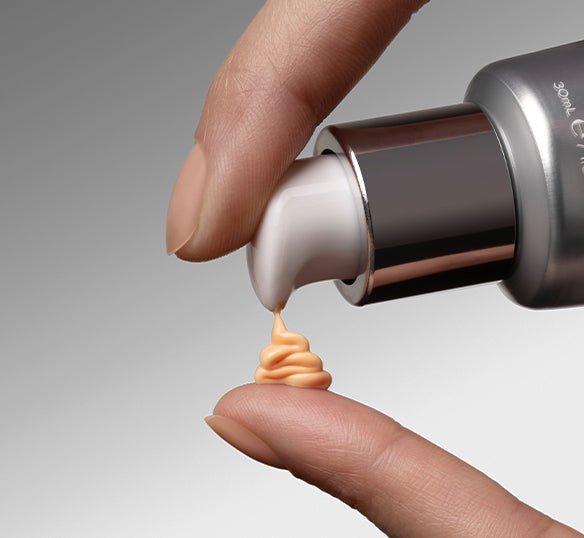
Retinoids: Retinol or Retinal
There is often some confusion about vitamin A and what it is. In short, retinol and retinal are both retinoids which are derivatives of Vitamin A. While they are both effective, there are some key differences that are worth knowing before you decide which is better for your skin.
Retinal is the best treatment for improving skin texture, especially when it comes to seeing visible results quickly, and it’s also able to improve the appearance of both brightness and hyperpigmentation. Our award-winning Crystal Retinal is available in a variety of 5 strengths, so you can work your way up for progressive visible results. It also works 11x faster*** than traditional retinol, meaning you’ll see a visible difference in your skin a lot sooner.
However, retinol has been studied a lot more than retinal (which is why we are continuously conducting our own research studies into retinal). Both help to stimulate skin cell renewal and encourage collagen production. We would only recommend using our Intelligent Retinol serums if you prefer an oil-based, liquid texture.

Alpha Hydroxy Acids (AHAs)
Alpha hydroxy acids – also known as AHAs – are a powerful ingredient that can really help improve skin texture. AHAs are chemical exfoliants that encourage skin cell turnover and increase collagen production, and they work by breaking down the bonds between dead skin cells, helping to slough them off much more easily.
Glycolic and lactic acid are the two most common forms of AHA, and regular use can lead to softer, smoother, more radiant-looking skin – but it’s important not to overuse them. However, depending how oily your skin is, you may be better using a beta hydroxy acid (BHA) instead.

Niacinamide
Also known as vitamin B3, niacinamide is a potent anti-inflammatory ingredient. Suitable for blemish-prone skin, it helps to prevent melanin production, in turn, helping to minimise visible hyperpigmentation and targeting an uneven skin tone.
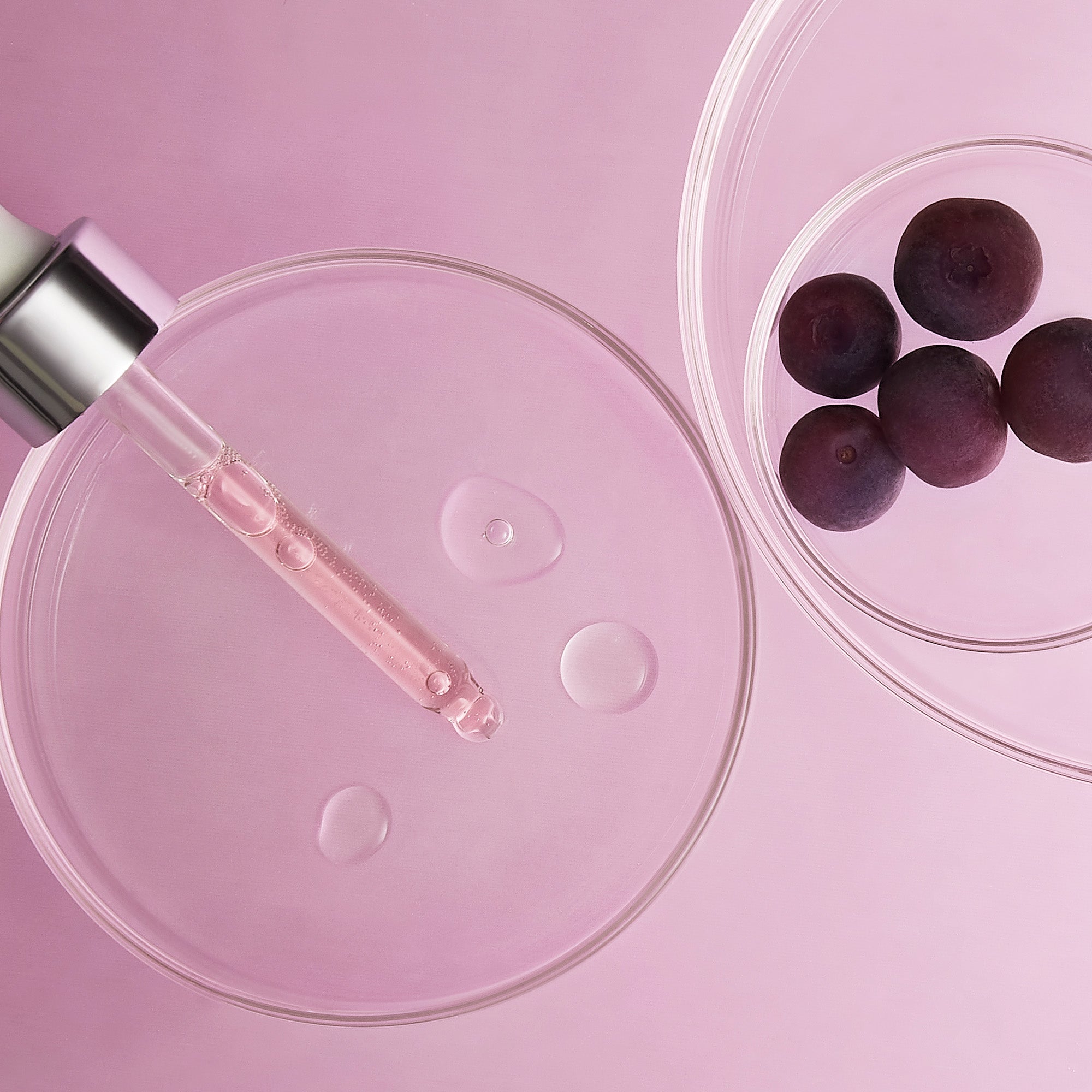
Hyaluronic acid
Hyaluronic acid is a true suits-all ingredient. It has the clever ability to attract and retain more than 1,000 times its own weight in water and it works by drawing moisture into the upper layers of the skin, leaving skin looking and feeling hydrated.
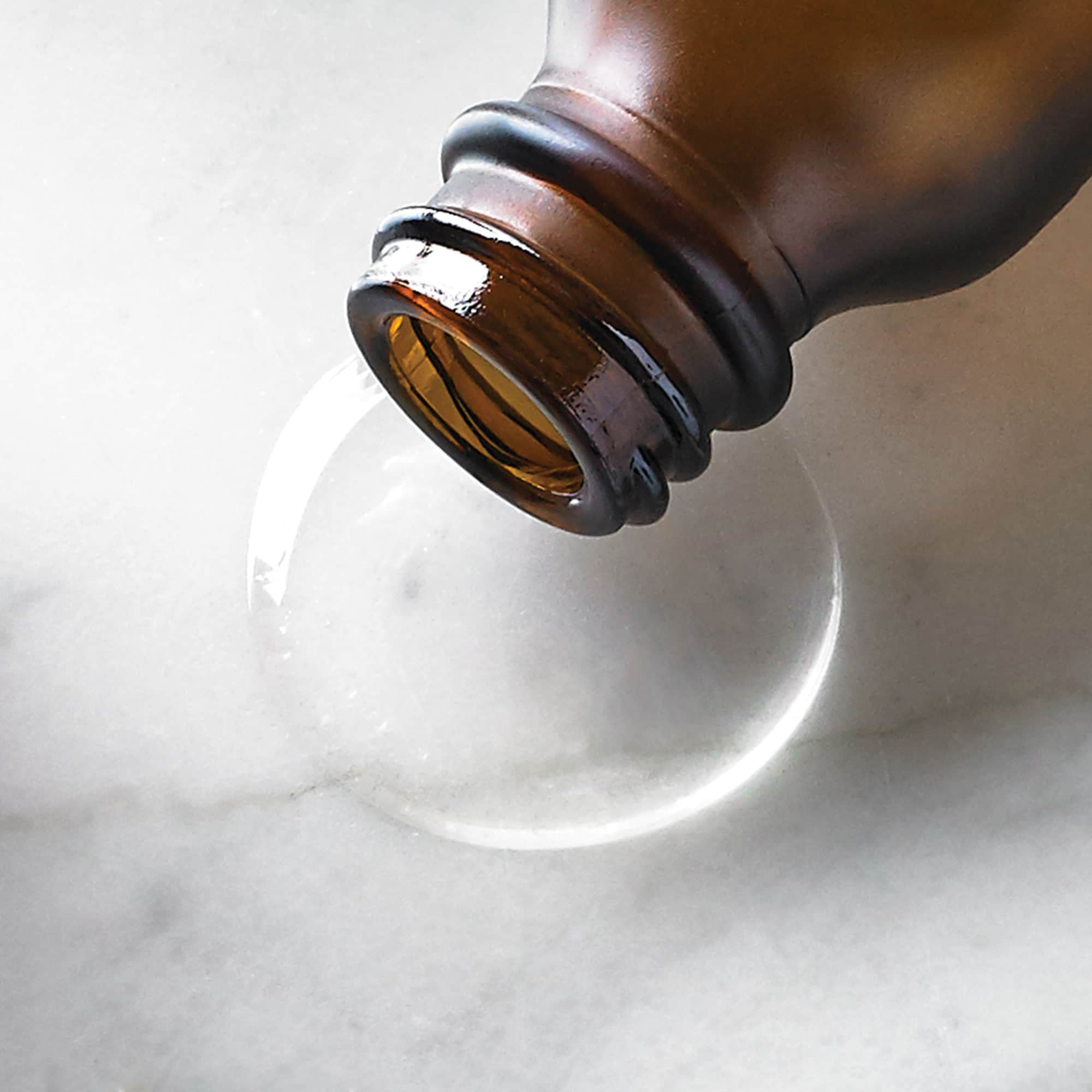
Vitamin C
Known and loved as an age-defying hero, vitamin C is a core part of the Medik8 CSA Philosophy and is therefore a must-have in any morning routine. Our products are expertly crafted using scientifically proven forms of vitamin C, and our array of products – from nourishing creams to potent serums – makes finding the right product for you easy.

Additional ingredients for textured skin
Salicylic acid: a beta hydroxy acid (BHA) that works deep inside pores, dissolving and removing excess oil, dead skin cells and debris to help unclog and prevent breakouts. It’s best for oily, blemish-prone skin types.
Ceramides: applied topically, ceramides replenish and strengthen the skin’s barrier to improve overall hydration.
Peptides: by stimulating collagen production, peptides are able to help improve skin firmness, smoothness and overall texture to reduce the appearance of fine lines, wrinkles and uneven tone.
Squalane: lightweight and non-comedogenic, squalane mimics the skin’s natural sebum to help moisturise and soften without clogging pores. It helps restore hydration, enhance elasticity and smooth the skin’s surface. It’s most suitable for those with dry skin.
FAQ's
Textured skin can occur for a myriad of reasons that include genetics, skin type, environmental factors, hormones and sun damage to list a few. Before treating textured skin, it’s best to address the root cause.
In short, yes, retinol can help to improve the skin texture. Retinol is a derivative of vitamin A, and at Medik8, we are the experts in formulating it. If you’re looking for quick, visible results, retinal is the best option because it works 11x faster than retinol.***
Yes, you can fix textured skin. The key is to understand what’s causing the texture in the first place – is it a result of fine lines and wrinkles, dry skin, or is it perhaps down to enlarged pores and acne scarring? Whatever the cause, ensure to invest in the right products for your own skin type and remember that consistency and patience are always key when it comes to targeting individual skin concerns.
The length of time that it takes to improve skin texture is very much dependent on your individual skin type and concern. If you find that your skin isn't improving after following the above guidance for a couple of months, we would always recommend speaking to a dermatologist to rule out any possible underlying issues that could be causing the issues with your skin’s texture.
Also known as vitamin B3, niacinamide is a great ingredient to help visibly improve skin texture. It has a multitude of benefits, including regulating oil production, improving the skin’s barrier function and reducing inflammation. By being able to address those issues, niacinamide can help smooth the skin’s surface, minimise the appearance of pores and improve hydration levels. It also helps to even out skin tone and texture.
Textured skin manifests in a number of ways depending on causes and individual factors. Most commonly, textured skin is rough, uneven, and bumpy. It can look dull and visibly uneven and there may be some enlarged pores and acne scars along with fine lines and wrinkles, both of which are associated with textured skin.
There are several reasons why your skin has become textured. Some of the reasons include genetics, skin type, environmental factors, ageing, skincare habits, hormonal changes, seasonal changes and some medical conditions.
While social media may have you believe that some people’s skin is smooth by nature, it is actually completely normal to have some texture. Everybody’s skin is different and has its own unique characteristics – however, it’s worth noting that the degree of texture can vary somewhat, and it can be influenced by a number of different factors. While some people may have naturally smoother, more even skin, others may have bigger pores, more roughness and some unevenness. Skin texture is common and is not often cause for concern, but the right skin care will help improve texture and its overall health.
If you stand in front of a well-lit mirror, look for areas that appear to be rough, bumpy or irregular or that have enlarged pores, acne scars, fine lines, wrinkles and dry patches. You can even run your fingers over your skin and feel for any unevenness – that will give you a good indication as to where the most problematic areas may be.
Yes, it is very common for your skin’s texture to change as you get older. Several factors can contribute to changes in texture, including decreased collagen and elastin production, reduced cell turnover, thinning of the skin, some hormonal changes and environmental damage. These changes are all part of the ageing process, but implementing a consistent skincare routine can help minimise the effects of ageing on skin texture, helping ensure it stays visibly smooth and youthful-looking.
*Proven via independent clinical study on C-Tetra Luxe conducted over 4 weeks on 36 participants
**Proven via independent clinical study on Hydr8 B5 Intense conducted over 4 weeks on 32 participants
***G. Siegenthaler et al., Retinol and retinal metabolism, Biochemical Journal, 1990, 268, pp 371-378

Lucy Partington
Lucy Partington has been a beauty editor for over a decade and has written for titles including Stylist, Cosmopolitan, ELLE, British Vogue and GQ Middle East. She loves trying new sunscreens, cleansing her face at the end of a long day and is on a constant quest for glowing skin.
